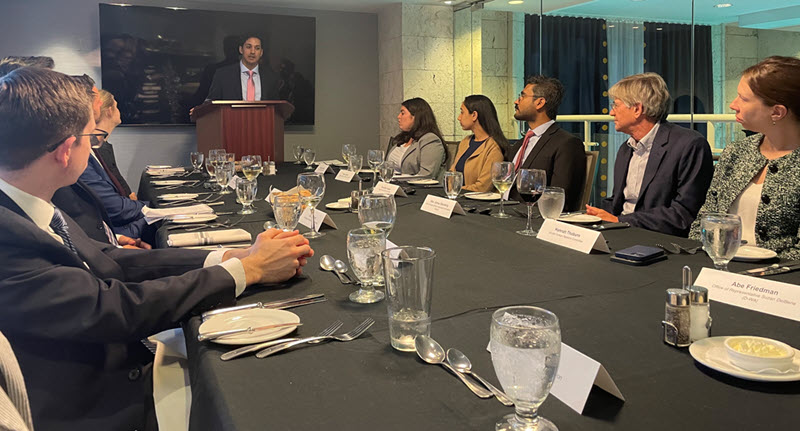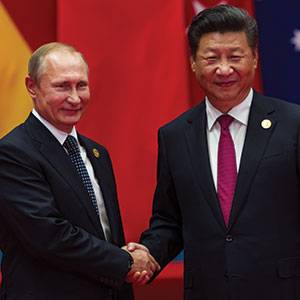Congressional Study Group Discussion
China-Russia Relations
Honorary Dinner Speakers
Rush Doshi, Deputy Senior Director for China and Taiwan, National Security Council
James Steinberg, former Deputy Secretary of State; Dean of John Hopkins University’s School of Advanced International Studies
Following a summit in the leadup to the 2022 Winter Olympics in Beijing and weeks before the Russian invasion of Ukraine, Presidents Xi Jinping and Vladimir Putin announced a “no limits” partnership between China and Russia. In the subsequent months and years, Russia’s unprovoked aggression in Ukraine, coupled with Beijing’s simultaneous support of Moscow’s war effort, has resurrected concerns in the United States and Europe over the threat to the international order posed by a strengthening Russia-China partnership. Meanwhile, the United States continues to balance various pressures in providing reliable support to Ukraine’s resistance while realizing the ambitious commitments it has set for itself across all domains of national power in the Indo-Pacific.
In September 2023, NBR hosted an off-the-record Pacific Rim Congressional Study Group dinner for senior congressional staff. The group was joined by Rush Doshi, deputy senior director for China and Taiwan at the National Security Council, and James Steinberg, former deputy secretary of state and dean of John Hopkins University’s School of Advanced International Studies. Participants exchanged ideas on the following topics:
- The calculus and scope of China’s support to Russia in the context of the ongoing war in Ukraine
- The long-standing sources of suspicion and distrust between Russia and China and implications for the future of the partnership
- The ideological dimensions of the Russia-China partnership, and the extent to which those bonds are driving Beijing and Moscow closer in the current era
- Whether there are possible areas of competition between Russia and China, including Beijing’s continued cultivation of influence in Central Asia, the Arctic, and the Middle East, among other regions
- The extent to which fundamentally divergent interests and deep-seated strategic mistrust of the United States by authoritarian leaders limit opportunities to improve relations or reduce friction at present





